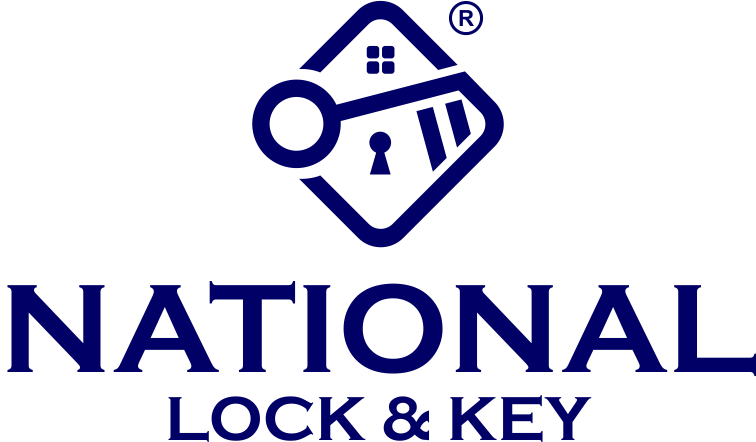What to Know About Electronic Locks
An electronic lock (also called smart locks) is an electrically operated lock affixed to the door.
Electronic locks are the solution for homeowners who dream about never worrying about losing their keys. In addition to eliminating the concern about misplacing or forgetting keys, an electronic lock is the optimal solution for safety and convenience.
The following article will provide helpful information about electronic locks.
Electronic Locks
An electronic lock (also called a smart lock) is an electrically operated lock affixed to the door. It uses an electronic chip to identify and unlock the lock in different ways without needing a key. Lock options include fingerprint, magnetic card, password, remote, or Wi-Fi/Bluetooth.
The electronic door lock uses AA batteries, which last from six to nine months, depending on the level of use of the lock.
Advantages of electronic locks
Open/close the door quickly and conveniently
Safer for users than traditional locks
Easy to share with family members
Easy to change suitable mode
Increase the aesthetics and modernity of the house
Disadvantages of electronic locks
High price
Difficult to install
Unable to self-repair when faulty
Types of electronic locks
Fingerprint unlock
Fingerprint technology isn’t new; we’ve used it on mobile phones. With electronic locks, the homeowner will save their fingerprint in the lock system. When they need to enter the house, they rest the correct finger on the lock, and the door opens.
Advantages:
High security cannot be copied or stolen because each person has a different fingerprint code.
Some types of locks can record up to 100 different fingerprints.
Disadvantages:
If the homeowner sustains an injury on their hand, the finger they saved may be covered.
Some people’s hands sweat and the reader may not register their fingerprints in these cases.
Homeowners can overcome these disadvantages with proper planning. They should save multiple fingerprints and dry their hands thoroughly before accessing the lock.
Magnetic card
This locking system uses a magnetic card to unlock the door. Each card consists of an electronic chip that stores a different data code. Magnetic keys often use RFID (Radio Frequency Identification) technology, identifying objects by radio waves, allowing them to read the information contained in the chip.
Homeowners hold or insert the magnetic card into the reader to unlock the door.
Advantages:
Open the door quickly and conveniently. It only takes two to three seconds to open the door.
Anyone can open the door when receiving the card because it does not require everyone to make preset settings such as fingerprint unlock.
Disadvantages:
Homeowners must remember to take the card with them when leaving the house.
Homeowners can break, forget, or misplace the card.it is possible to forget, lose, or break the card.
Passcode to unlock
Homeowners can register and create many different passwords according to their needs. The lock system will remember the data; they only need to enter the correct passcode to unlock the door.
Advantages:
Easily change the passcode regularly to ensure safety.
Can allow others to enter the house by sharing the password.
Disadvantages:
Must enter the whole code sequence correctly; some locks also require an * or # sign when entering the code, so unlocking time is longer than opening by fingerprint or magnetic card.
When unlocking, the user must avoid letting others see their passcode.
Remote unlock
Remotely controlled door locks use a sensor device with two receivers, one in the door lock and one in the hand-held control. When the homeowner activates the remote, the signal transmits to the lock system to open the door.
Advantages:
Homeowners can open the door from a long distance without going to the door to unlock it.
Disadvantages:
Homeowners must carry a remote when going out, which is easy to forget or lose.
Unlock via Wi-Fi
Like Bluetooth door locks, Wi-Fi door locks will link the lock system with smartphones, allowing the homeowner to unlock or look up the activity history of the key via an app on your phone.
Advantages:
Control the lock at any place with Wi-Fi, not limited to the radius range. This advantage is valuable when traveling or working away from home but still wanting to open the door for someone.
Manage the operation of the lock through the application on the phone.
The lock system will send an alert to the application on the phone when it detects that a thief is trying to break the lock.
Disadvantages:
Cannot perform in conditions with limited network connections.
Smart locks are modern and offer significant advantages to homeowners, who can choose which type of electronic lock is suitable and safe for their needs and conditions. Contact a local locksmith to discuss the best electronic lock solution.
National Lock & Key is a licensed, insured, full-service commercial and residential locksmith serving Northern Virginia, Maryland, and Washington D.C. Contact us at (571) 351-1012.

